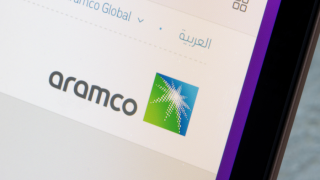Mohamed El-Nawawy’s appointment as CEO and managing director of Telecom Egypt in August 2012 was welcome news for the company’s wholesale segment.
El-Nawawy previously served as VP of international wholesale, and more recently as SVP and chief strategy officer, but continued to head up Telecom Egypt’s submarine cable division. The move is deemed internally as a clear sign that the new regime in the country is taking wholesale telecoms at the company very seriously.
It is rare to find the figurehead of a company the size of Telecom Egypt with such a strong past in wholesale. El-Nawawy’s appointment was part of a management reshuffle following the end of Hosni Mubarak’s 30-year tenure as leader of the country.
With Telecom Egypt 80% state-owned, and a large part of the revolution led through social media campaigns, the company’s future fortune is certainly something that requires a large level of attention for the new regime.
Pay as you grow
Stability on subsea routes comes hand-in-hand with a stable political environment, which is why Telecom Egypt is now pushing ahead with a long-standing project to mesh its submarine cable networks together.
Mohamed Saro, Telecom Egypt’s director of international customers and networks, outlines the company’s intentions to create an ultra-high capacity transmission network, which gives operators connecting to the ‘super cable’ a different a range of options if they
opt to land in Egypt.
“The project gives companies the ability to cross through several different routes across one high super capacity network. This could be through two routes of dark fibre pairs, or a route that is protected by an SLA for example.”
Saro says the ability to migrate the cable into another existing one on the same route will further enhance resiliency. “Considering all the cable systems already crossing through Egypt and with more being built, it is important for us to offer additional resiliency,” he says.
The project, like most things in Egypt, still requires governmental approval, but the company expects to have the first phase completed by next year. “By 2013, we may not have the full route in place, but certainly a subset of the projected cables will be addressed,” he says.
If successful, the model will significantly transform the subsea cable market dynamics in Egypt. Saro said, however, it will still require the present government to firmly establish itself as the ruling party for it to go ahead.
Saro says the initiative promotes a “pay as you grow” model, rather than a long standing IRU which ties in an operator to a specific route. “Normally you have these contracts which tie an operator on dark fibre pairs on two routes, but on this, it is all dependant on your requirements,” says Saro.
“If you have mission-critical traffic for one of your wavelengths and you need to enhance resiliency, this project allows a company to do that. We aim to provide an easy hop-on and hop-off solution through cross connections on different cable systems.”
A positive outlook
The company paints a positive picture of the new government’s potential, both from a telecoms standpoint and on a wider economic and political scale.
Saro points to the recent developments made by the Islamist regime in the communications industry. “Government is helping us reformulate and reform directives to make Egypt a better place and recover the country’s image which has been affected over the past year.”
It is widely thought that the internet played a crucial role in Egypt’s revolution and the subsequent removal of Mubarak as leader. And the term ‘Egypt 2.0’, heralded by ex-Google employee and activist, Wael Ghonim, is used to highlight how important the communications industry is to the country’s modernisation process.
Saro also agrees that it is an absolute necessity. “Our submarine cable initiatives were severely hurt by the old regime, which insisted on certain directives for cables. Cables going into Egypt had to go through a set of frameworks which caused a lot of delays to any international development. It appears the new government is realising the importance of Egypt’s geography,” he says.
The Egyptian telecoms market hopes to undergo numerous changes intended to open up the market and give Telecom Egypt more leverage in its fixed and mobile operations. Saro draws on comparisons to what happened in China when the market was opened up for operators to gain access to universal licences, as an example of what could be set to happen in the domestic market.
“We believe these routes will happen and if the market opens up to provide us with more competition, I am confident our routes are the shortest from the Red Sea to the Mediterranean with the lowest latency,” says Saro.
Since speaking to Saro, however, the country’s political situation remains on a knife edge with fierce opposition generated against Islamist party leader and democratically elected President Mohamed Morsi. At the time of writing, violent clashes and fierce protests in Cairo are occurring in earnest against a proposed referendum that will substantially increase Morsi’s power.
Gateway to Africa?
The proposed subsea cable project could help Telecom Egypt unlock the potential of the country’s geographical position, and discover new opportunities for growth in Africa and Asia. It plans to introduce a wave of projects in the regions throughout 2014 and 2015 and has “connections into east Africa at the top of our agenda”, claims Saro. “The next three years will see our infrastructure expansion phase, with the aim to continue to grow both horizontally and vertically.”
Along with accessing emerging markets, the company remains just as committed in accommodating new service areas. Saro says there is an increasing amount of OTT players beginning to implement nodes across the country, with the aim of tapping into the country’s relatively young and increasingly social media savvy population.
“There is a slow but sure realisation that Egypt is pivotal,” he says. “Considering the amount of traffic the country generated last year, there has been an increasing number of companies caching here and peering through us, with the aim of bringing CDN services to our networks. There will be big developments.”
Seemingly, there is an underlying mission for Telecom Egypt to convince the international community that the north African country is a place to come and do business again. “We are trying to create a transit friendly environment for the different carriers and providers to leverage the different cable systems which can provide them with connectivity into neighbouring countries, to western Europe, the Mediterranean basin, Asia and the Arabian Peninsula.”
Of course, it is important for a state-owned company in a country beleaguered with political instability to project the right image to promote international investment. With the new President already under fire, and opposition parties gaining traction, it appears that Telecom Egypt’s ambitious plans for development will depend on political stability.
2013 could well be a pivotal year for both the country and the company.
Telecom Egypt: key facts
History: Telecom Egypt has been the major telecoms company in Egypt for over 150 years and formerly operated as the Arabic Republic of Egypt National Telecommunications until 1998. It launched its first telegram line connecting Cairo and Alexandria in 1854. The majority state-owned company had its first IPO for 20% of its stock in 2005.
Ownership: Telecom Egypt is 80% state-owned and 20% publically-owned. Its IPO raised over $890 million and at the time was the largest international equity offering coming out of the Middle East and north Africa region.
CEO: Mohamed Amin El-Nawawy was appointed as Telecom Egypt’s CEO and managing director in 2012.
Customers: Telecom Egypt has a fixed-line customer network of over nine million, and it’s subsidiary TE Data has an internet broadband subscriber base of almost 1.2 million. The company has 18 related equity interests across Egypt, the Middle East and north Africa.
Network: Mobile operators within Egypt rely on the company’s network infrastructure capabilities for international and wholesale calling. It operates as a data hub between Asia, Africa and western Europe. The TE North cable, built in collaboration with Alcatel-Lucent is a 40G undersea cable connecting Egypt to Marseille, France with presence in Jordan and Cyprus.




